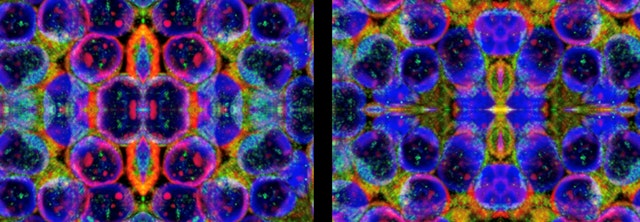

By Rachel Yehuda, PhD, Director of the Mount Sinai Center for Psychedelic Psychotherapy and Trauma Research
Some 70 percent of Americans experience trauma during the course of their lives. These watershed events—from combat to interpersonal violence to health crises—etch a dividing line in the psyche. For about 15 million Americans each year, trauma triggers a cascade of symptoms known as post-traumatic stress disorder (PTSD).
The current gold standard treatment for PTSD—cognitive behavioral trauma-focused therapy and antidepressants, often used in combination—can provide symptom relief. But for many people with PTSD, current treatment options fall short. Between the side effects of antidepressants and the distress of reliving traumatic memories in therapy, dropout rates are high.
In the last three decades, I have worked with veterans, Holocaust survivors and their families, people affected by the World Trade Center attacks of 9/11, police officers, women exposed to interpersonal violence, and adults and children traumatized by severe medical conditions. And I have overseen many clinical trials to repurpose FDA-approved compounds to prevent or treat PTSD.
Recently, our research team turned our attention to a more complicated and highly controlled class of substances—psychedelics—to consider how these compounds might facilitate psychotherapy. In January 2021, I became founding director of the Center for Psychedelic Psychotherapy and Trauma Research at the Icahn School of Medicine at Mount Sinai in New York City. This is an exciting and promising moment in psychedelic-assisted psychotherapy. The most important first task is to understand who can best benefit from these approaches. It’s also important to understand the mechanism of action behind these treatments, building on extensive work we have already performed in the neurobiology of PTSD.
Last fall, our team began enrolling United States military veterans in a phase 2-b trial to assess the safety and efficacy of MDMA—a psychedelic commonly known as Ecstasy or Molly—to augment outpatient psychotherapy for PTSD at the James J. Peters VA Medical Center in the Bronx. These studies are accompanied by brain imaging and epigenetic investigation, which is the study of how behaviors and environment can cause changes that affect the way genes function.
MDMA was first synthesized in 1912 by Merck, and they didn't really know what it was going to be used for. It was patented a few years later, and therapists began using it in the 1960s and 70s as a way to help people talk about things that were difficult. MDMA is not considered to be a classic psychedelic. MDMA is a drug that promotes empathy, introspection, and interpersonal trust. It not associated with visual hallucinations or ego dissolution, like psychedelics such as psilocybin or LSD, so it's more of a gentle experience. The street name for MDMA is Ecstasy, which gives you an idea of how some people feel when they take it. But when it is used in the controlled context of therapy, it is really a heart opener. It is medicine that gets you to face things that are difficult to face. A typical course of MDMA-assisted psychotherapy involved three 90-minute preparation sessions, followed by an eight-hour medicine session with MDMA, followed by three more 90-minute integration sessions, another eight-hour medicine session with MDMA, three more integration sessions and a final eight-hour medicine session with three more integration sessions. So, this is a therapy that uses a psychedelic to assist in a psychotherapeutic process.
So far, there have been six phase 2 trials and one completed phase 3 trial of MDMA. The results have been so promising that the FDA has designated MDMA as having breakthrough status. Most patients show a profound change in symptoms severity, far greater than the change that is associated with current psychotherapy and pharmacotherapy trials, even though they only take the MDMA three times in the course of three months. And it appears that the gains that are made continue to be made as patients work with some of the insights they have gained in the altered state. In follow-up visits a year later, about 68 percent of the people who received MDMA-assisted therapy in the phase 2 trials no longer had PTSD. Many patients reported making significant life changes, engaging with family and friends, developing more self-compassion and feeling eager to move on following trauma. The experience of taking MDMA in the context of MDMA-assisted psychotherapy makes sense to me, because the patient is able to look at what happened to them in a new way and achieve new goals for living.
Recreational use of MDMA is still illegal, and differs from use of MDMA in the context of psychotherapy. So our Center does not advocate psychedelic use recreationally, nor do we recommend that people use MDMA on their own hoping to gain insights without the important container of psychotherapy. While many people had fantastic outcomes, MDMA-assisted psychotherapy may not be for everyone, and in the trials there were also non-responders. Our job is to try to figure out for whom MDMA-assisted psychotherapy might be most helpful. That is why our clinical trials also include brain imaging and biomarkers. We also need to learn more about how psychedelics work in the brain.
For now though, I am excited about the potential to apply psychedelics beyond PTSD. There is a lot of trauma now in our society—racial, intergenerational, and we are still experiencing a global COVID-19 pandemic that I think is creating a mental health pandemic.
When the FDA does approve MDMA for the treatment of PTSD, we hope our research will allow clinicians to make sound choices. Therefore, in our Center, we are also undertaking a comprehensive training of therapists who work in community settings and in VAs. We have to make sure that we train a new generation of providers to use these tools responsibly. We also want to do the research that will help us understand other indications that are trauma related, and who this kind of therapy might help: Do you have to have a full-blown PTSD? What about just having trauma or intergenerational trauma? Are there other psychedelics that might also be helpful, not just MDMA? We need to be armed with the right information, so that we can guide the field.
Mount Sinai has created a culture of discovery and has really been the perfect place to initiate this research. There is so much expertise here, and we are confident that in a few years, we will have more insights into the neurobiological mechanisms of action by which psychedelics can promote recovery from PTSD to strategies for scaling treatment to meet community needs. An essential purpose of the Center is to provide training, education, and, ultimately, credentialing in the use of psychedelic therapies from all over the country. I see the Center’s role as a trusted voice, supplying high-quality scientific data to a new field that is sometimes driven by hype or conservatism.
To learn more about the therapeutic use of psychedelics, watch Rachel Yehuda in conversation with Andrew Penn, Jeeshan Chowdhury, and Shoshana Ungerleider during Aspen Ideas: Health 2022:
__________________________________________________
The views and opinions of the author are their own and do not necessarily reflect those of the Aspen Institute.





